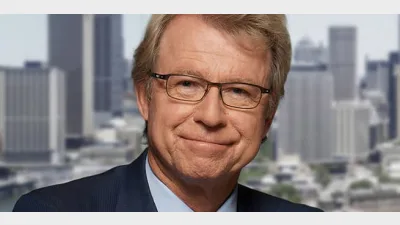Rest commits US$300m to offshore infrastructure credit strategy



A US-based infrastructure specialist has welcomed the $93 billion fund as a cornerstone investor.
Rest has made a US$300 million commitment to US-based I Squared Capital’s infrastructure credit strategy, which focuses on providing tailored financing solutions for infrastructure assets.
In announcing Rest’s commitment this week, l Squared capital fund partner David Rosenblum welcomed the $93 billion fund as a cornerstone investor.
“Their investment is a testament to the strength of our platform and our ability to source and structure compelling investment opportunities in infrastructure credit,” Rosenblum said.
The investment, he said, also highlights the growing demand for infrastructure debt opportunities among large and sophisticated limited partners.
“We look forward to a long-term partnership that delivers strong, risk-adjusted returns for Rest’s members,” Rosenblum said.
Commenting on the announcement, Rest’s interim co-chief investment officer Simon Esposito said the commitment aligns with its goal to deliver attractive risk-adjusted returns for the fund’s 2 million members while supporting essential infrastructure development.
“Coupled with the strong fundamentals of infrastructure credit markets, we believe this presents a compelling investment opportunity for our members,” Esposito said.
“The majority of our members are decades from retirement, so we think deeply about the world they will retire into, as well as the megatrends likely to influence global society and the economy over the long term.”
Esposito highlighted that the fund is seeing “increasing demand” for infrastructure financing as “businesses invest in essential projects to support economic growth and the energy transition”.
“With a focus across sectors including renewable energy, digital infrastructure, and transportation and logistics, we believe our investment with I Squared Capital is well-positioned to benefit from these decarbonisation, digitalisation, and deglobalisation megatrends, while also enhancing the diversification of our infrastructure portfolio across different sectors and geographies,” he said.
Speaking to Super Review sister brand InvestorDaily earlier this year, Esposito said the fund was following an investment strategy that includes exposure to a broader range of diversifiers that have inflation-hedging characteristics, such as infrastructure, particularly of the type that benefits from decarbonisation.
“The decarbonisation of the economy presents extraordinary opportunities to invest in assets that deliver over the long-term for our members,” he said at the time. “The energy transition continues to provide interesting investment opportunities that align with our long-term member objectives.”
To date, Rest has made significant commitments to infrastructure assets supporting decarbonisation, digitalisation, and telecommunications, including its cornerstone investment in Fidelity International’s Real Estate Logistics Climate Impact Fund and a $1 billion commitment to renewable energy manager Quinbrook Infrastructure Partners.
Recommended for you
Qantas Super has officially merged with ART over the weekend, with its CEO describing the “bittersweet” decision as being in the best financial interests of its members.
The super sector has apologised and vowed to fix widespread delays, poor service, and systemic failures in processing death benefit claims, following an ASIC review.
Long-term investors face a critical decision – stay the course or pivot, says leading economist Shane Oliver.
More Australians are turning to exchange-traded funds (ETFs) to grow their retirement savings, as evidenced by a series of recent product launches.












